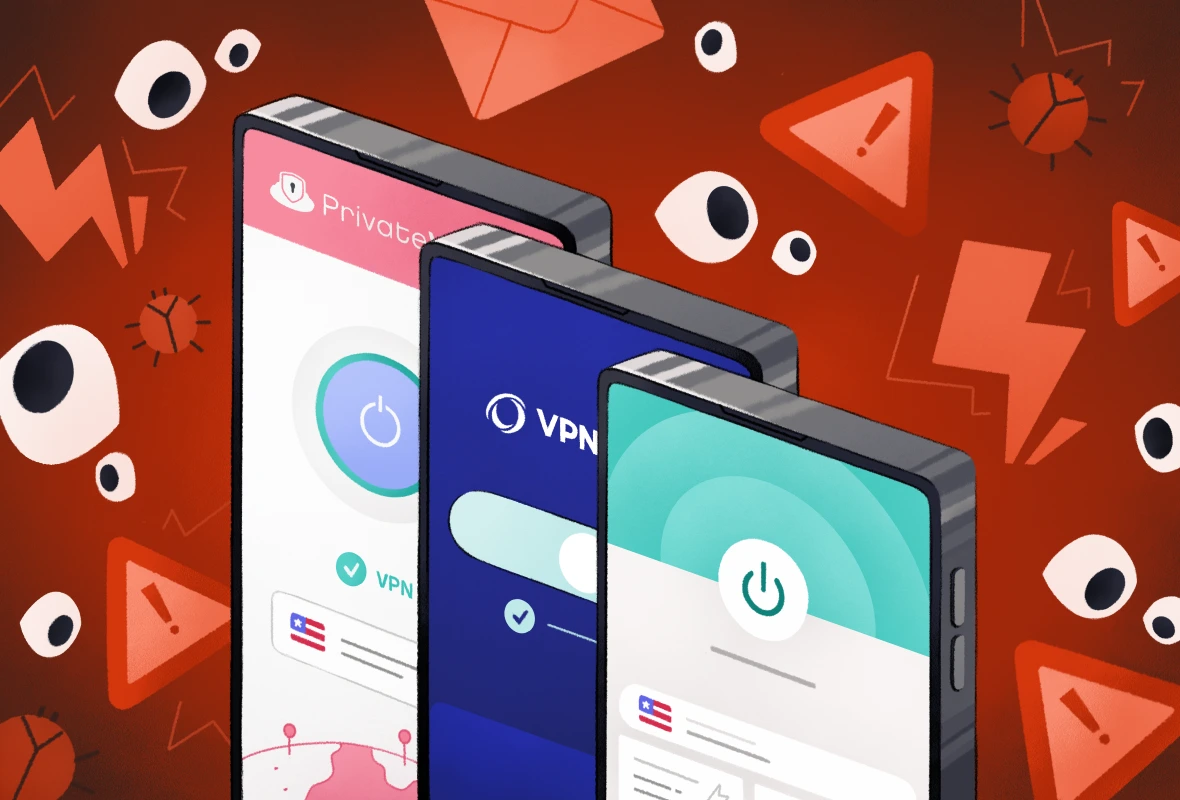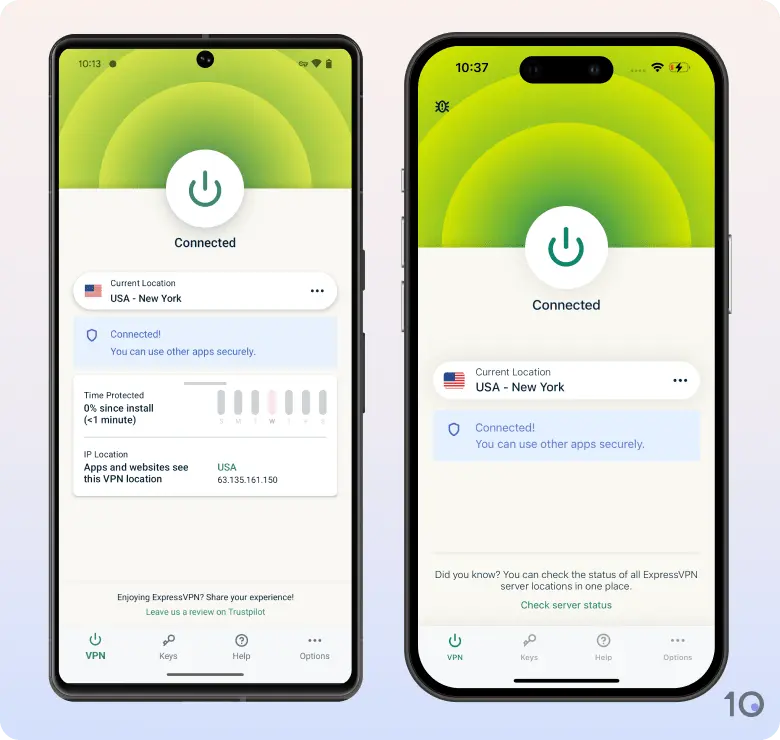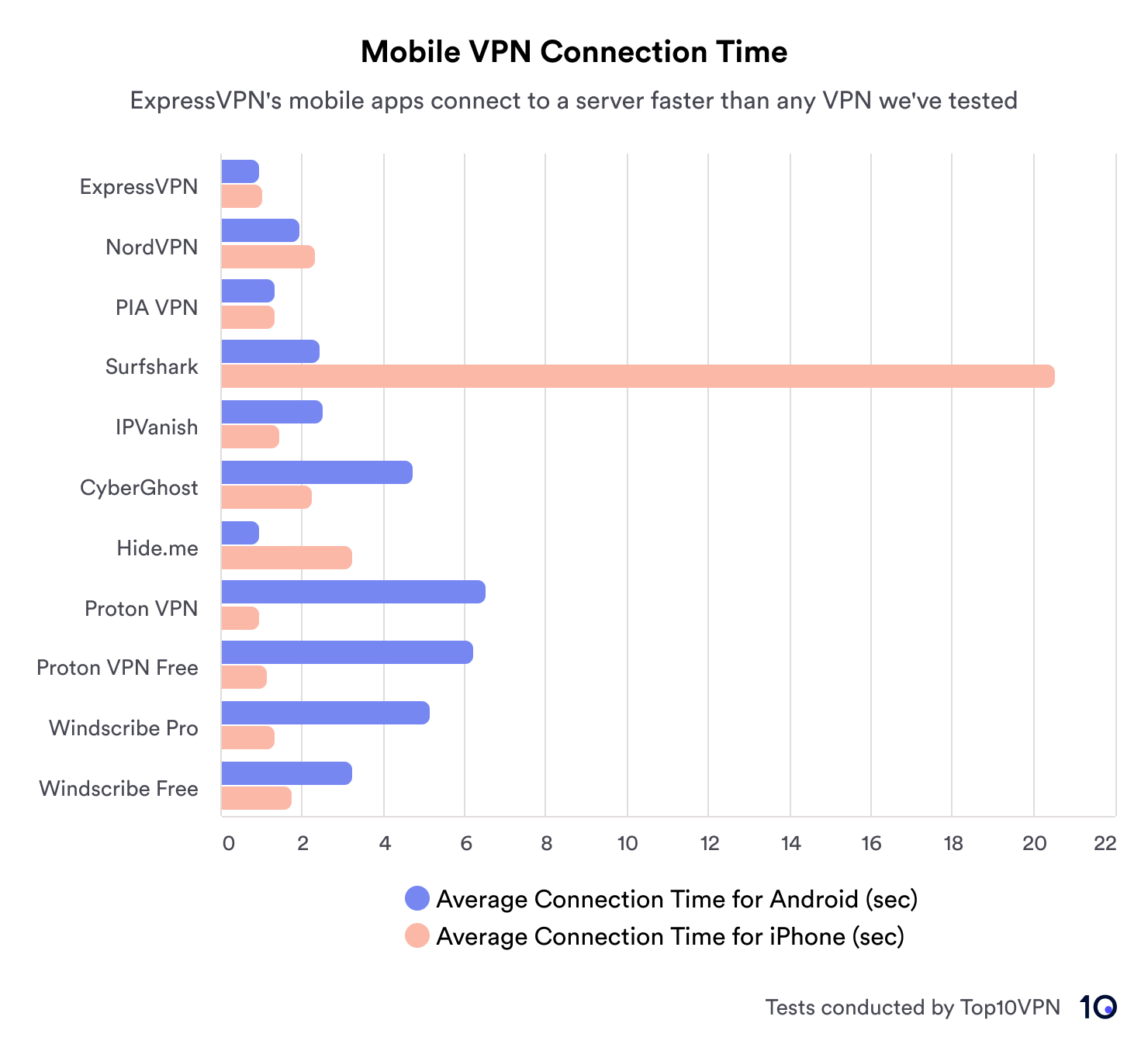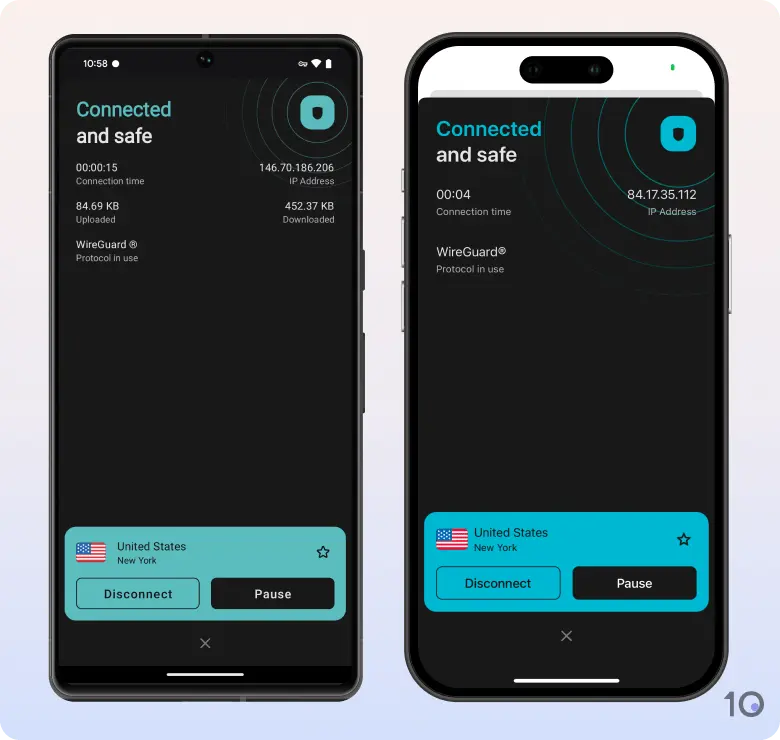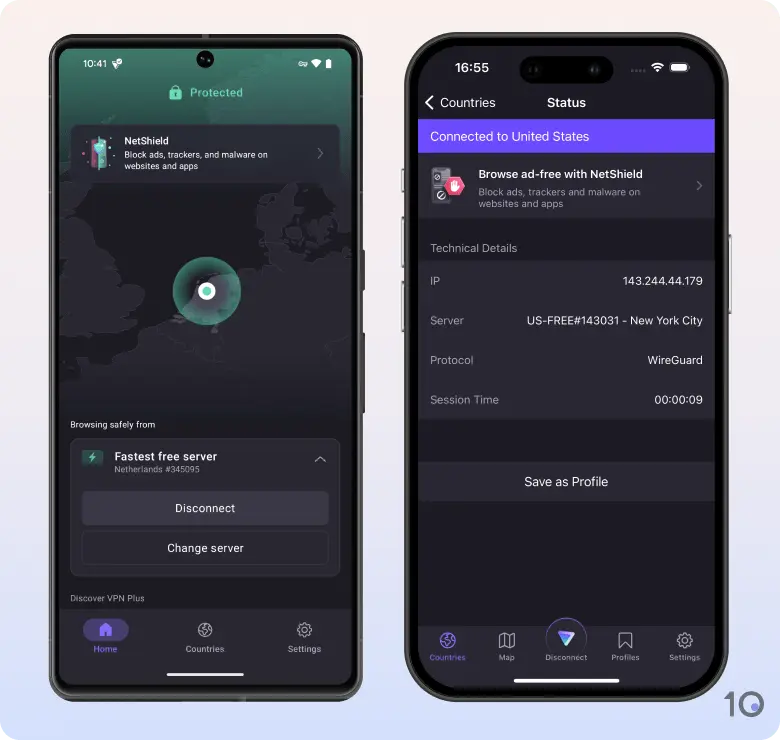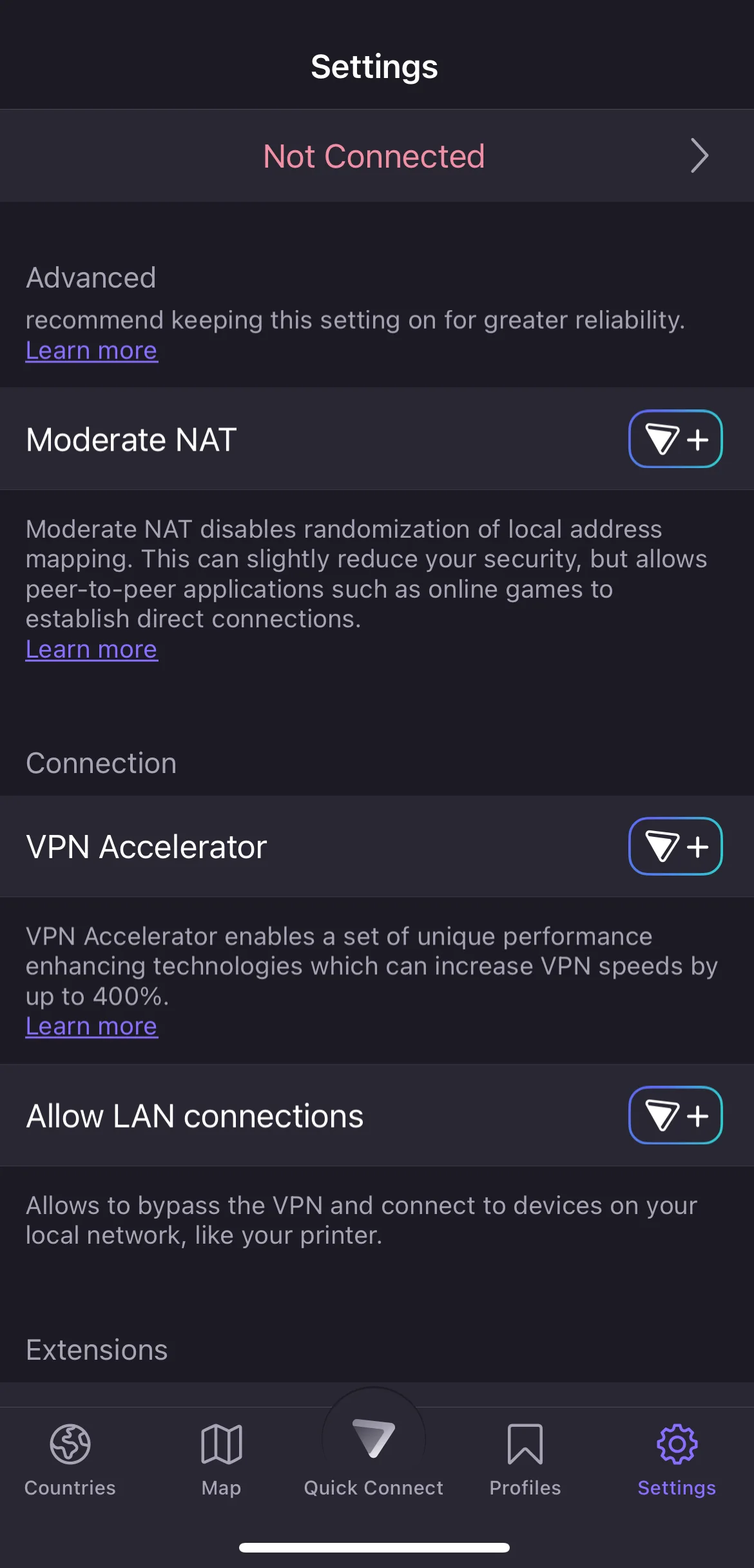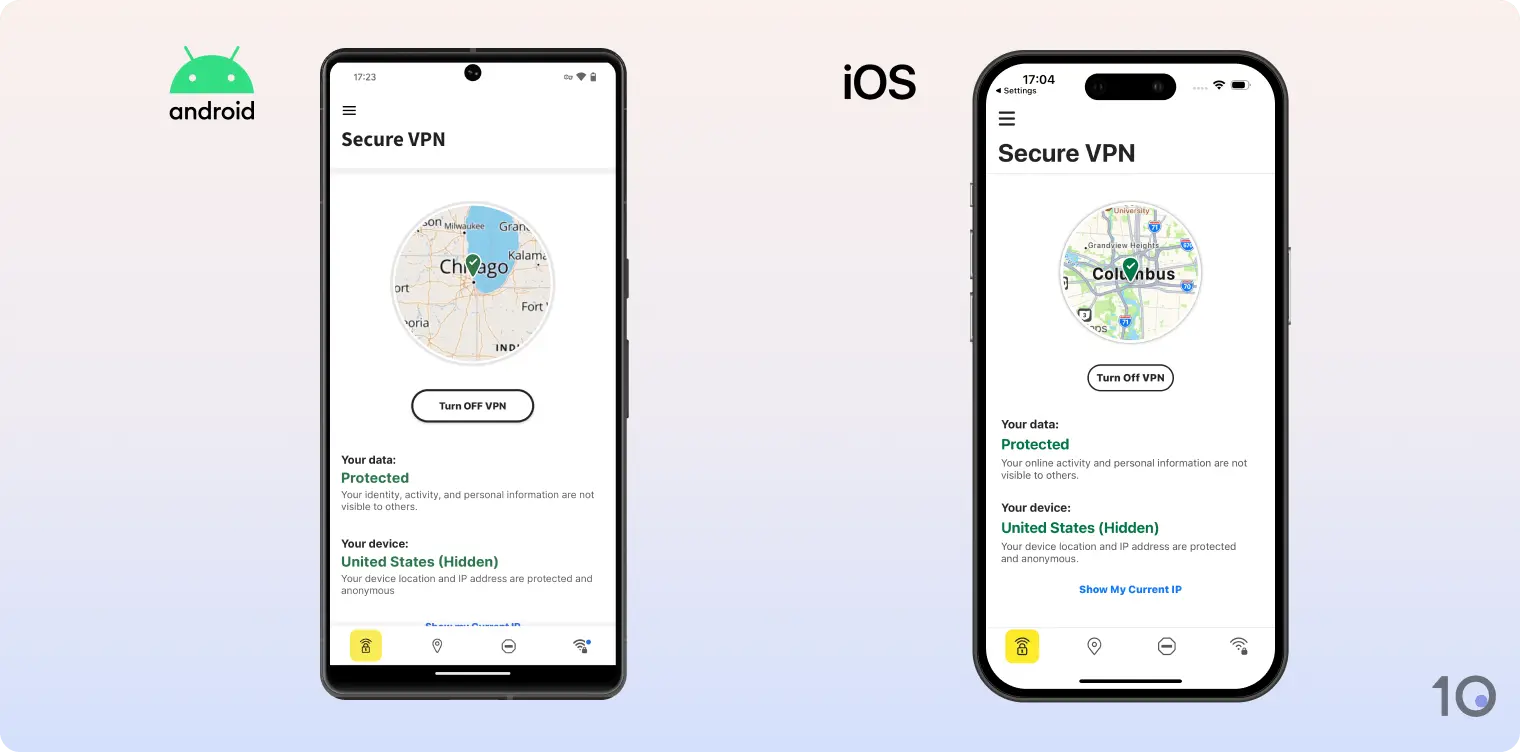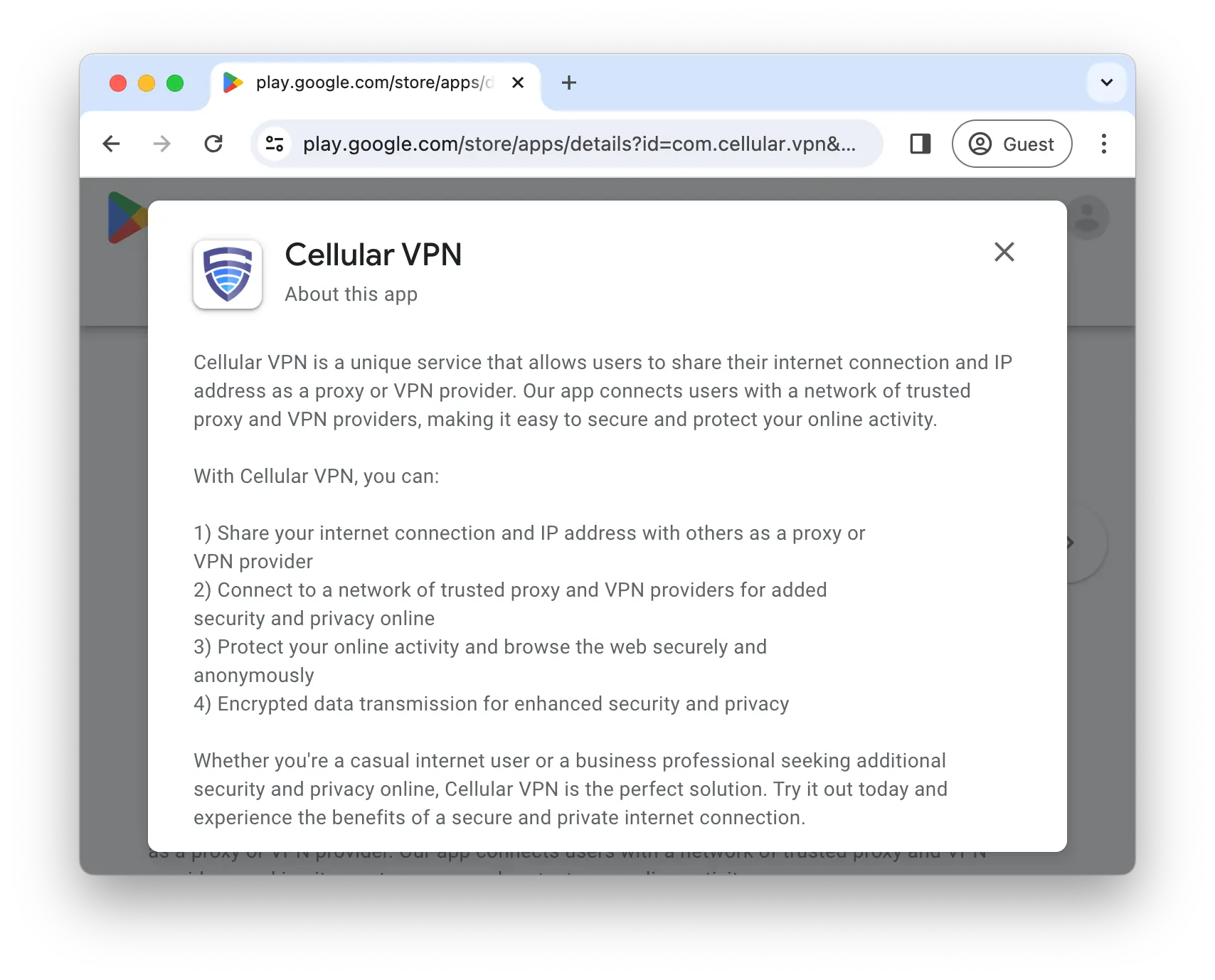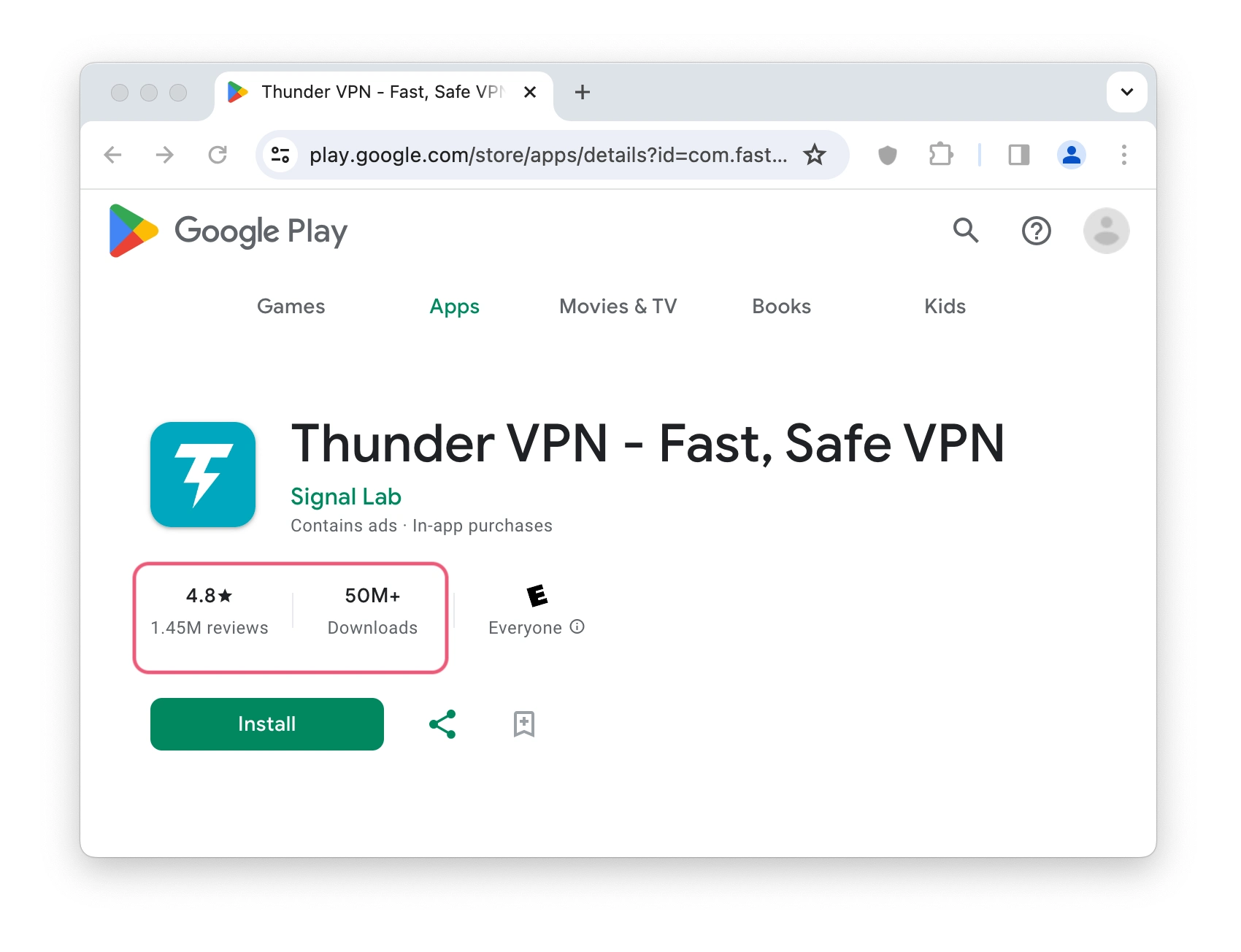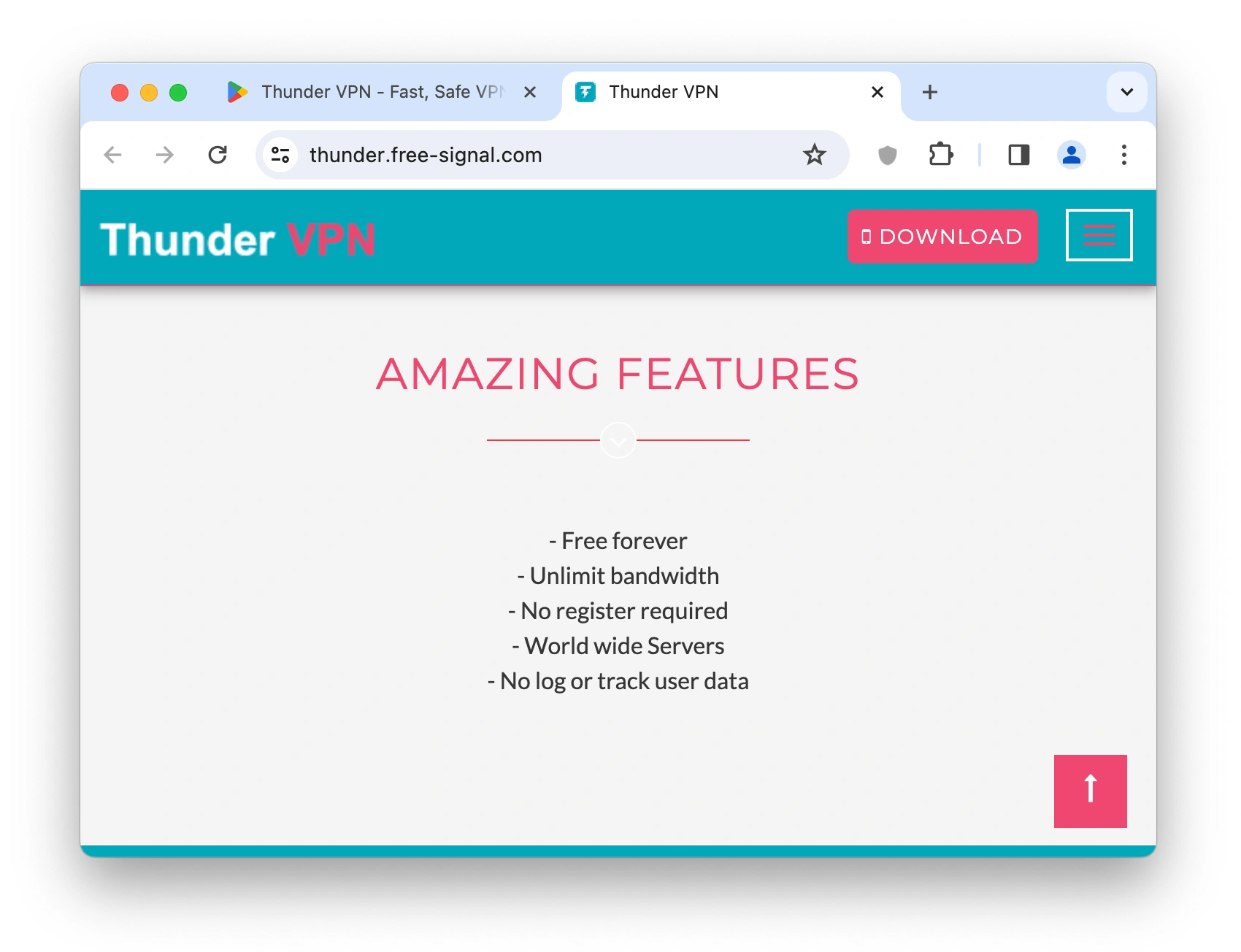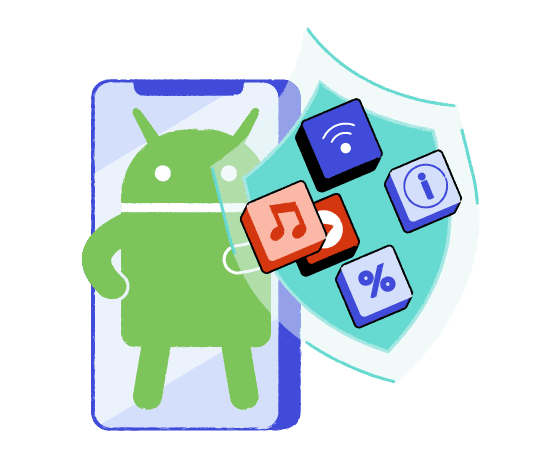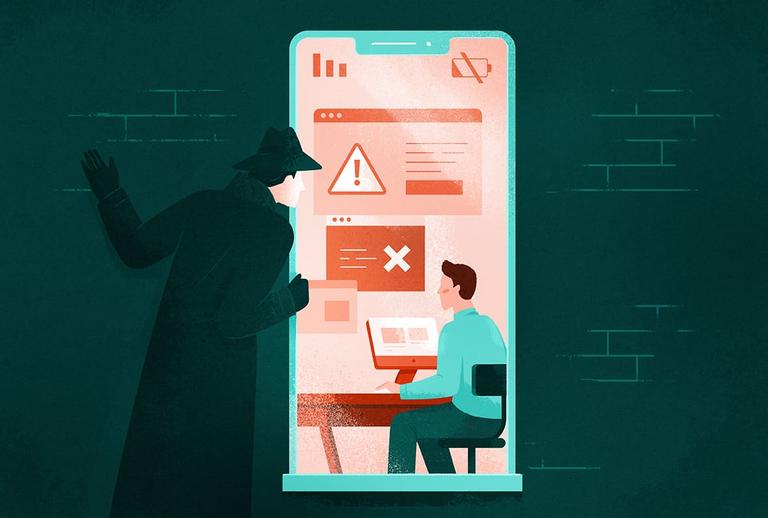How We Tested & Chose the Best VPNs for Mobile
To identify the best free and paid mobile VPNs, we tested 62 VPN services with a custom-built methodology.
This methodology is divided into two sections: our testing team’s experience of the VPN and its features, alongside a quantitative analysis of its performance in our testing.
As an additional factor, we consider the privacy policy of each mobile VPN to ensure that your online anonymity isn’t compromised by the service.
You can find a detailed walkthrough of our mobile VPN testing methodology in the sections below:
1. Mobile App Usability (30% of Overall Rating)
We expect top-rated mobile VPNs to provide apps which are easy to install, setup, and use regardless of your mobile OS.
Plus, these apps should integrate seamlessly into your mobile device without requiring the installation of additional software or unnecessary learning curves.
We rewarded VPNs with a compact and intuitive mobile app design. Specifically, we looked for decluttered home screens, clearly labeled features, and buttons which are sensibly spaced and responsive.
Mobile VPNs which included ads or data limits were automatically disqualified from the selection process.
To calculate a usability rating, multiple members of the testing team independently assigned each VPN a rating out of 10 based on their personal user experience. We then used this to calculate an average and multiplied it by 0.3 to account for its 30% weighting.
2. Mobile App Features (30% of Overall Rating)
The best mobile VPNs should offer the same features as their desktop counterparts as well as features built for mobile devices specifically.
As a minimum, every recommended VPN has a kill switch, full server network, modern protocols, and functioning GUI on their mobile apps.
Our mobile app features rating calculator can’t be detailed fully here, but the following ranges provide an overview of what each rating means:
- 0.1 – 3.0: Poor mobile apps. Only provides a connect button and a server list, essentially a proxy service.
- 3.1 – 5.9: Inadequate mobile apps. Includes basic features but lacks mobile-specific integrations and the sophistication of its desktop counterpart.
- 6.0 – 7.9: Moderate mobile apps. Functional, with the essentials covered, but lacks advanced features or mobile-specific ones.
- 8.0 – 9.4: Excellent mobile apps. Very little feature disparity with its desktop counterparts and one or more mobile-specific features.
- 9.5+: Fully-featured mobile apps. Achieves near-total feature parity with desktop apps and includes multiple features optimized for mobile.
Once we assign a value from this scale, we then multiply it by 0.3 to account for its 30% weighting.
3. Mobile Connection Time (10% of Overall Rating)
To test mobile connection time, we always use:
- Apple iPhone 14 Pro (iOS 17)
- Google Pixel 7 Pro (Android 12)
- Dedicated WiFi network
- Digital stopwatch
A VPN’s connection time is a measurement of how long it takes to connect to a nearby server.
This is particularly important for mobile users, as cellular data is more prone to connection drops due to inconsistent network coverage.
Similarly, you’re more likely to use a mobile VPN with public WiFi, which is more susceptible to third-party attacks and snoopers.
Therefore, a fast connection time is essential to protect your personal data on mobile. It’s also an indication of how responsive and easy-to-use the VPN app is.
We measured each mobile VPN’s connection time by timing how long it took to connect to the nearest server on its default protocol. We performed this test three times each for iPhone and Android device and then averaged the results into an overall mobile connection time.
To generate a rating, we converted the final average into a value on a scale of 1 to 10 and multiplied it by 0.1 to reflect its 10% weighting.
You can see our full mobile connection time results and ratings in the table below:
4. Mobile Battery Usage (10% of Overall Rating)
To test mobile battery usage, we always use:
- Apple iPhone 14 Pro (iOS 17)
- Google Pixel 7 Pro (Android 12)
- The same test video
- Consistent VPN protocol & server location
An active VPN connection significantly drains your mobile’s battery and is often one of the leading consumers for battery usage.
The exact amount is difficult to determine and depends on several factors including: the selected VPN protocol, the type of encryption, your signal strength, and your phone’s model.
We’ve created a standardized test to determine the approximate battery usage of each mobile VPN, but it is not exact for the reasons outlined above.
While connected to a nearby VPN server, we streamed a 60 minute video in Full HD quality and recorded our mobile’s battery level before and after streaming. We did this three times each on iOS and Android, using the same test video, to determine an average battery loss.
To calculate the rating, we converted the final average into a value on a scale of 1 to 10 and multiplied it by 0.1 to reflect its 10% weighting.
5. Speed (10% of Overall Rating)
To test mobile speed, we always use:
- Apple iPhone 14 Pro (iOS 17)
- Google Pixel 7 Pro (Android 12)
- Fixed 100Mbps connection
- Bespoke speed test servers
Fast speeds are an essential part of a VPN service, especially when connecting to unreliable mobile networks.
To test this, we regularly connect to VPN servers in five different continents and aggregate the results into an average.
The final results are converted into a rating using our speed test calculator and then multiplied by 0.1 to reflect its 10% weighting.
You can find a selection of each mobile VPN’s speed test results, alongside their speed rating, in the table below:
6. Privacy & Logging Policy (10% of Overall Rating)
To test privacy & logging policy, we always use:
- Custom-built logging policy calculator
- Multiple testers to independently examine the policy
A VPN’s logging policy outlines how much of your data is monitored and collected by the service. If too much is logged, then your mobile activity can become linked to you and exposed by a hacker or court case.
We test this by reading every word of a mobile VPN’s logging policy and then recording what it logs, where it’s stored, and how long it’s kept for.
We also take into consideration the VPN’s jurisdiction and whether it uses any additional measures to protect your privacy, such as diskless servers.
To calculate this rating, we take it from the Privacy & Logging Policy section of the VPN review. We then divided it by 0.1 to account for its 10% weighting.
